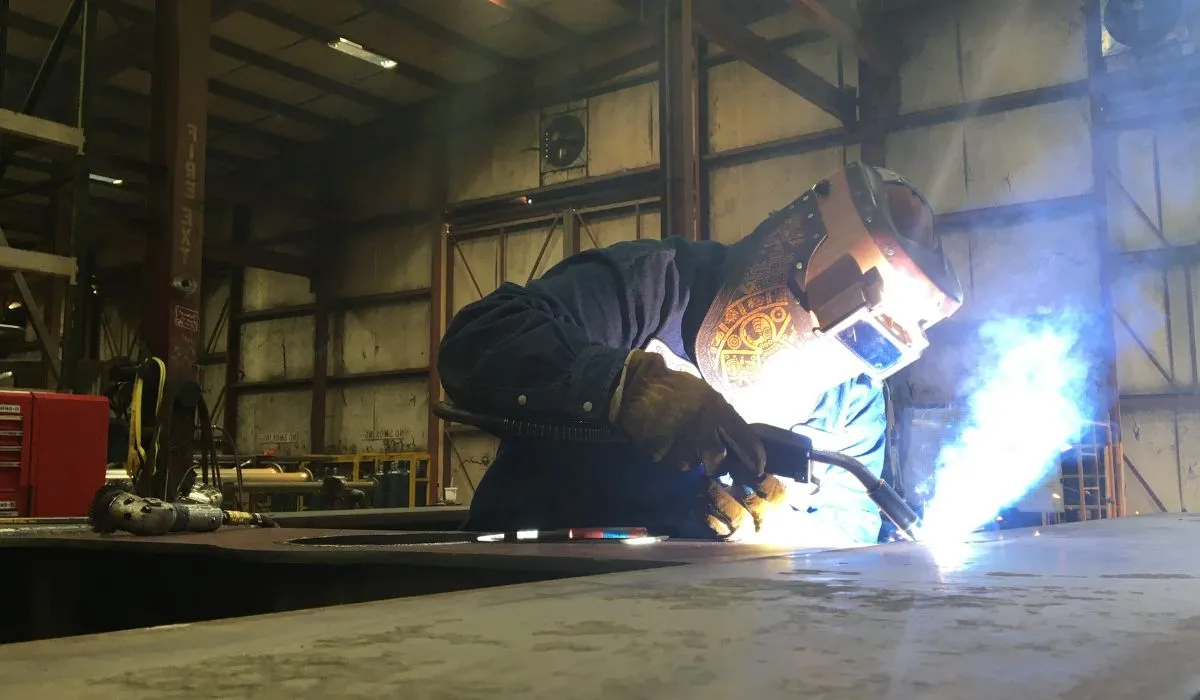3 min read
The Importance of Specialty Welding in Today's Industry
ParFab Companies
June 7, 2023 8:16:28 PM EDT

Welding is an integral part of many industries such as oil & gas, semiconductor, manufacturing, and construction. Welding techniques have evolved over the years. With advancements in technology, we have specialty welding techniques, including exotic material welding, that help address specific issues encountered during the welding process.
In this blog post, we will discuss the importance of specialty welding in today's industry and how it can be beneficial for your business.
- Specialized Welding Techniques
- Cost Reduction
- Precision and Accuracy
- Quality Assurance
- Better Safety Standards
Specialty Welding Techniques
Specialized welders are trained to perform the following techniques: automated welding, orbital welding and laser welding. These techniques are used in industries where welding processes are intricate, and traditional methods do not suffice. From specialty welding and turnarounds, manufacturing, process engineering and automotive engineering, to semiconductor and military applications. These techniques are often used for the smallest components, like fasteners or medical device design, where it must meet exceptionally high standards for accuracy and reliability.
Automated Welding
Automated welding is suitable for mass production and produces consistent results.
Orbital Welding
Orbital welding is used in industries where the welders need to work in restricted spaces. It employs the use of robotics and produces high-quality welds.
Laser Welding
Laser welding is used in highly complex industries such as aerospace and medicine.
Cost Reduction
Specialty welding will help reduce your costs in the long run. Traditional welding techniques are labor-intensive and can lead to high costs. Specialized welding techniques not only guarantee consistent work but also reduce the amount of material and man-hours used during the welding process. Automated welding, for instance, can produce results faster, and the efficiency of the process results in increased profits. Where orbital welding can be used to produce welds of higher quality, reducing the amount of grinding and rework required.
Precision and Accuracy
In industries such as aerospace, automotive, and oil & gas, the quality of welds can have a significant impact on the life span and overall efficiency of equipment. Specialized welding techniques provide increased precision, ensuring machines are up to standard. Automated welding, for instance, is known for producing consistent welds. Orbital welding produces tight and specific welds that are the only way to ensure some machinery's proper functioning.
Below are some of the industries that benefit most from intricate, high accuracy welding.
Semiconductor Fabs Industry
In the semiconductor fabs industry, specialty welding plays a vital role in the manufacturing of advanced technology devices. These techniques are employed to create ultra-clean and precise welds that meet the stringent requirements of the semiconductor industry, where even microscopic contaminants can result in device failure (3).
Oil Refining Industry
An oil refinery is usually complicated, consisting of pressure vessels, piping, and numerous other components that rely heavily on welding for stability. In such a challenging environment, specialty welding operations enable equipment repairs without disrupting the site's operations. In the oil refining industry it is important to schedule welding activities correctly and account for factors like time and resources.
Petrochemical Industry
Chemical plant processing units and their structural designs are incredibly complex. The structural integrity of these units is critical because of the specific operations conducted along with the extreme pressures and temperatures used in such operations. In the petrochemical industry, mechanical turnaround specialists must have the expertise to conduct welding and mechanical fabrication services under extreme conditions, allowing equipment repair without ceasing operations.
Quality Assurance
Specialty welders are trained to exercise quality control measures that ensure the company's welding procedures are in compliance with international standards. In industries such as aerospace and nuclear power, the quality control standards are stringent, and non-compliance can have severe consequences. Specialty welding techniques such as laser welding provide documentation of equipment produced to help keep better track of the manufacturing process. This in turn also helps minimize issues caused by human errors.
Quality Total Repair Rate
Since 2001, ParFab remains committed to being a forerunner in product quality by taking an aggressive stand on quality control. ParFab's quality control system has been approved by ASME, National Board, as well as multiple U.S. states and Canada. To learn more, click below.
| Year | % |
|---|---|
2023 YTD |
0.35% |
2022 |
0.27% |
2021 |
0.98% |
2020 |
0.49% |
Better Safety Standards
Specialty welding equipment is specifically designed with safety as a top priority. Automated and orbital welding machines are enclosed, which means that the welder needn't stand in harm's way during the welding process. Laser welding produces less heat and radiation, reducing the possibility of harm to the welder.
Safety Procedures
It is important to apply a strong safety culture within a team. ParFab's policy is to conduct its operations with the highest regard for the safety and health of its employees and clients.
| Year | EMR | TRIR |
|---|---|---|
2023 YTD |
.78 |
0 |
2022 |
.81 |
.20 |
2021 |
.76 |
.13 |
2020 |
.77 |
.00 |
2019 |
.81 |
.47 |
Contact ParFab Fabrication and Field Services
The utilization of specialty weld techniques for fabrication, field services, and turnaround services not only helps companies become more efficient and productive, but it reduces costs, increases precision and accuracy, ensures better quality assurance, and improves overall safety standards.
ParFab’s advanced team of specialty welders and fitters deliver unsurpassed quality and efficiency. Our highly skilled team consistently achieves a weld rate well below the industry standard of 2%.
Fabrication Welding Services include:
References:
Aerospace Welding: https://www.twi-global.com/industries/aerospace/welding
Medical Device Welding: https://www.azom.com/article.aspx?ArticleID=17587
Specialty Welding in Semiconductor Fabs: https://www.axenics.com/blog/specialty-welding-services-for-semiconductor-fabs




